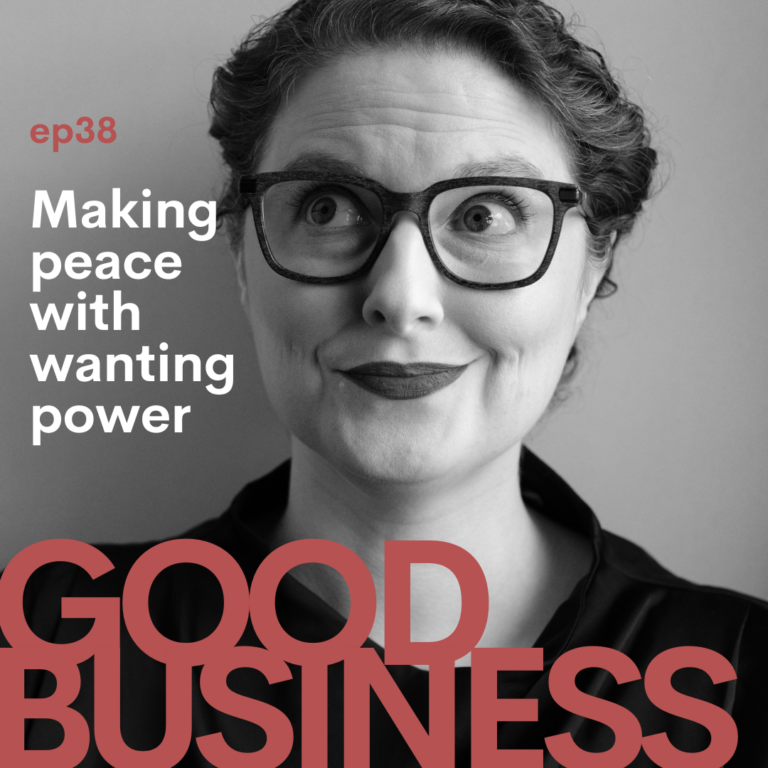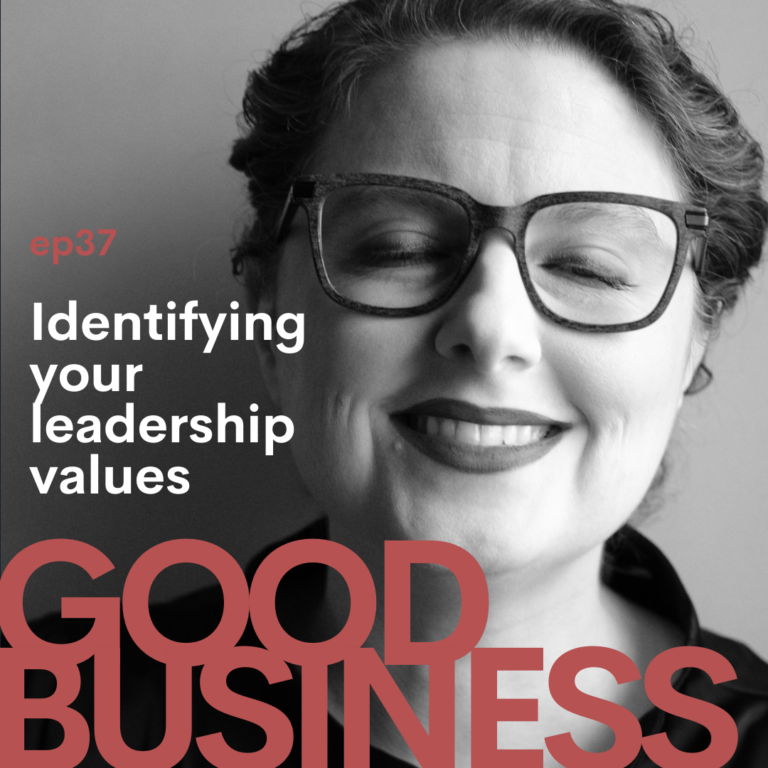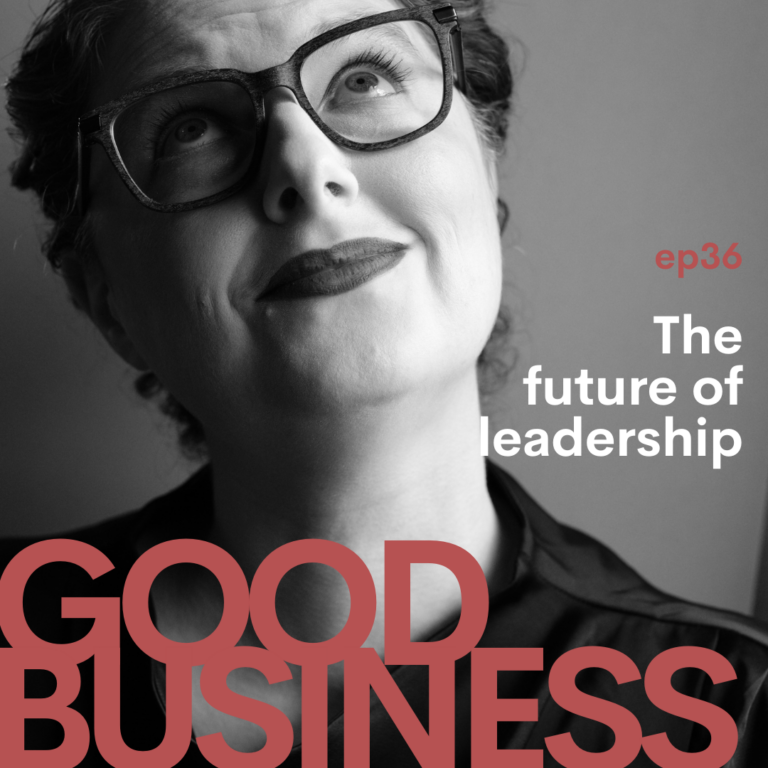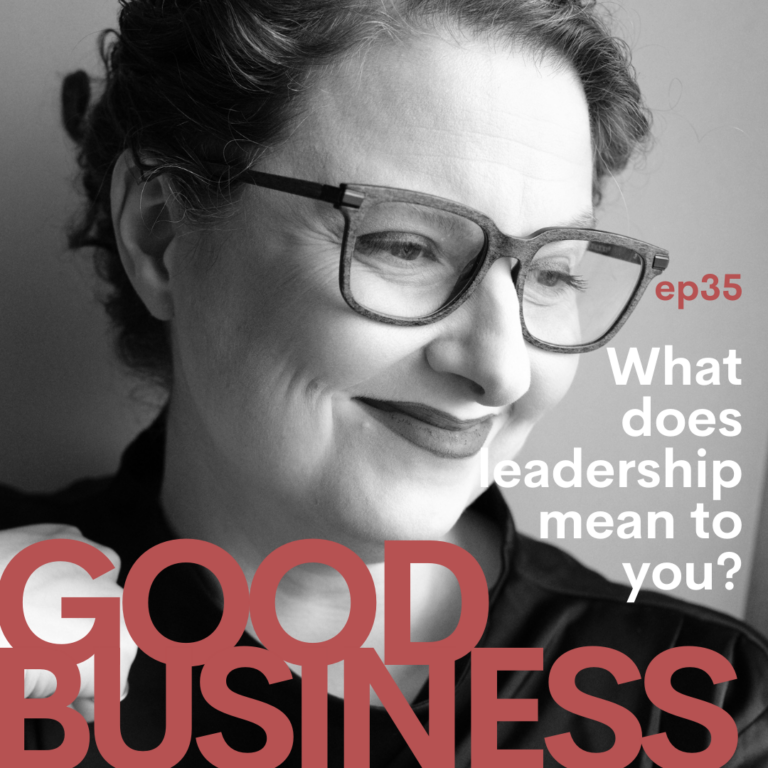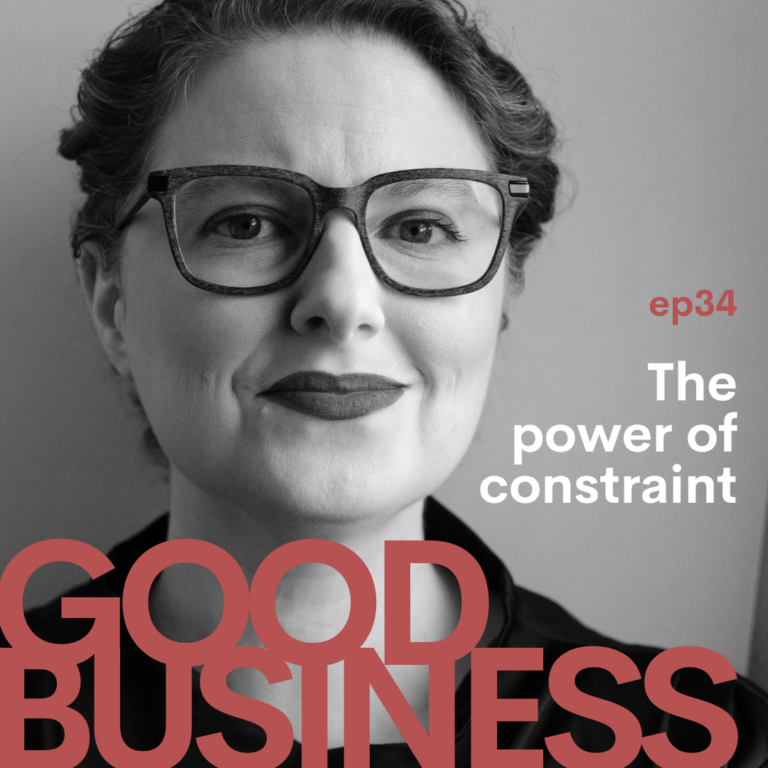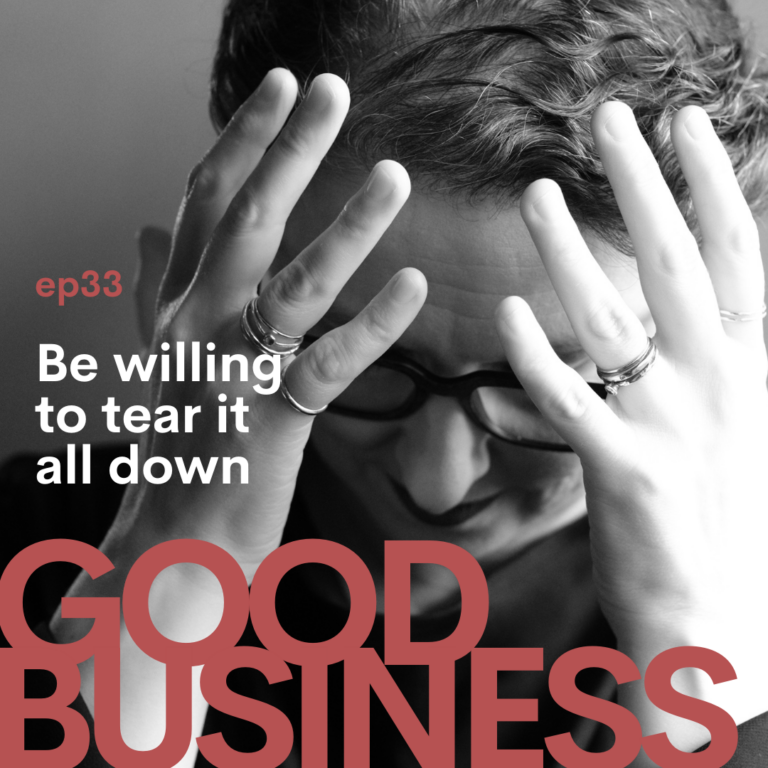Gone are the days of taking out an ad in the local newspaper to get foot traffic. When you start a business this day in age, you have to not only have something to SELL, you have to have something to SAY.
Episode Transcript:
I’m Illana Burk, CEO of Your Life’s Workshop, coach to entrepreneurs and solopreneurs across dozens of industries and host of Good Business. With nearly 20 years experience helping hundreds of clients create profitable, ethically driven and sustainable businesses based on their life’s work, I’m here to teach you how to do great work, make great money, and make a positive impact without feeling like you need a shower afterwards.
Hi everyone. Today’s episode is the third in our content series, and it dovetails on our last episode all about honesty in marketing. Today I’m going to walk you through why taking responsibility for your work matters and what can happen when you fail miserably at that. When you communicate with the people that you work with, you have a thousand choices. Your messaging can cause any number of emotional responses: eagerness, joy, anticipation, inspiration, shame, fear, fear of missing out; the list goes on and on. Content carries with it a tremendous amount of power for good or evil, from propaganda triggers to meaningful, thoughtful leadership, to heartfelt personal stories, the words you choose and how you wield them will shape how the world sees you as a business owner. Each communication or point of contact you will have with your people will have a ripple effect on every subsequent interaction.
A blog post from years ago left to languish in the annals of Google has nothing to do with your current work. They can tell a potential client all the wrong things about who you are and what you do now. A tweet making a bad joke a decade ago can get you fired from the job of your dreams. Likewise, a podcast interview you did as a favor to a friend who was starting out can turn into the penultimate representation of your most authentic work and can result in clients for years to come. So taking responsibility for what you say, how you say it and when it’s relevant, is critical if you want to have an impact in some positive way.
As an entrepreneur in this digital age, it has become so much more critical than it ever was before because our marketing strategies have become almost exclusively tied to content production and communication. Gone are the days when taking out an ad in your local newspaper would get you traffic. When you start a business this day and age, you have to not only have something to sell; you have to have something to say. Understanding what you want to say and having an effective way of saying it has become everything. It’s no longer an option.
It stopped being optional on whether or not you want to have a blog or a YouTube channel or a podcast as a partner to your business or at the very least a social media presence. You have to pick one. You have to pick at least one. You don’t have to do them all, but you have to pick at least one or two and get really goddamn good at it. Buyers, customers, clients, patients, whatever you call them in your world, make their buying decisions based on what they think of your business as an entity with a soul.
Crazy, I know, but that’s how people behave these days. That’s how we think. It’s how we make buying decisions. We are increasingly voting with our wallets. We are judging brands based on who they are, what they support, and what they stand for. Communication and content are how you give them this information to make those buying decisions. It’s how you help them know they want YOU and not your competition. It’s how you show them what matters to you because, believe me, they care.
So are you paying attention not only to the fact that you’re communicating but what you truly want to say? Do you know what your message and style are? Beyond knowing what matters to you, do you know what matters to the people you’re selling to and serving and how that relates to how and where you communicate?
You can’t just solve simple problems for people anymore. You have to solve their problem in a way that also makes them want to have a beer with you or a glass of wine or a cocktail. You have to make them want to spend time with you, hang out with you, use their leisure time with you. Use their disposable income with you. You have to solve their problem in a way that makes them want to ask you to solve more problems for them. Which means you have to align with their values, their tastes, their pop culture references, their goals, their politics, and their desires.
Here’s an example. I want to teach you how to do this. I want to illustrate my point. I’m going to sell you a bottle of water to three different audiences. First.
Water is critical to your survival. You know it, I know it. If you’re going to buy water, why not buy from a company that supports our president and keeps jobs in the USA? That’s what we do here.
Now that you’re all throwing up in your mouth a little bit, I’ll try to soften the blow a bit.
I know you always try to have your water bottle, but what if the bottle itself was helping build wells in Africa? What if by buying our water you were directly helping children in third world countries gain access to clean water?
A totally different feeling. A totally different vibe. Finally;
I know you would totally rather be drinking Mountain Dew, but too much Dew will totally make your balls smaller, and you should totally drink some water once in a while. So when you do, buy ours, okay, it will make your balls not smaller.
Hey, at least you’re not thinking about Trump anymore.
So you get the idea. What you say and how you say it affects who buys it. How you say, it affects the longevity of your work in the world. Pay Attention. It matters way more than you realize. When you build your business, don’t let your content and your communication be an afterthought. Rather, it should be a solid 50% of everything you do, every choice you make, every move you make, everything you create, because it’s the one and the only thing that makes it possible to do everything else.
Thanks for joining me today, you guys, and thanks for joining me for the content series. See you all next time. Bye Bye.
Thanks so much for hanging out with me today. For more information, visit www.thegoodbusiness.co or www.lifesworksdev.wpengine.com.
More Episodes
Making peace with wanting power | GB38
Today we're talking about a topic that is core to leadership. It's about making peace with power. And with wanting power. It sounds like a simple thing, right? But... are you actually comfortable with the acquisition of power...
Identifying your leadership values | GB37
Today's episode is about identifying your leadership values. And not in a "Oh, I value honesty" version. It might not sound sexy, but it's essential. Episode Transcript: Hi everybody, and welcome back to the Good Business...
The future of leadership | GB36
Today's episode is about the future of leadership. Leadership is broken. So what do we do about that? Episode Transcript: Hi, everybody, welcome back to the Good Business Podcast. I’m your host, Illana Burk, and I am delighted...
What does leadership mean to you? | GB35
Today's episode is about leadership. What leadership is, what it isn't, what it means, and why it's important. Episode Transcript: Hi everybody, welcome back to the Good Business, I’m so glad you are here with me today. I want...
The power of constraint | GB34
Today's episode is about constraint. That's right. Constraint and scarcity and false scarcity. Ready? Episode Transcript: Hi everybody. And welcome back to The Good Business Podcast. I'm your host, Illana Burk. I am delighted to...
Be willing to tear it all down | GB33
Today, we are going to talk about something that comes up again and again. And that is the willingness to pivot, to make big changes when you see them as necessary. Now a lot of this ties into the basic concept of objectivity. And we’re going to touch on that a little bit too. But today is really about making peace with something that we are told our whole lives, that we’re not supposed to make peace with, which is that something is not actually better than nothing.

